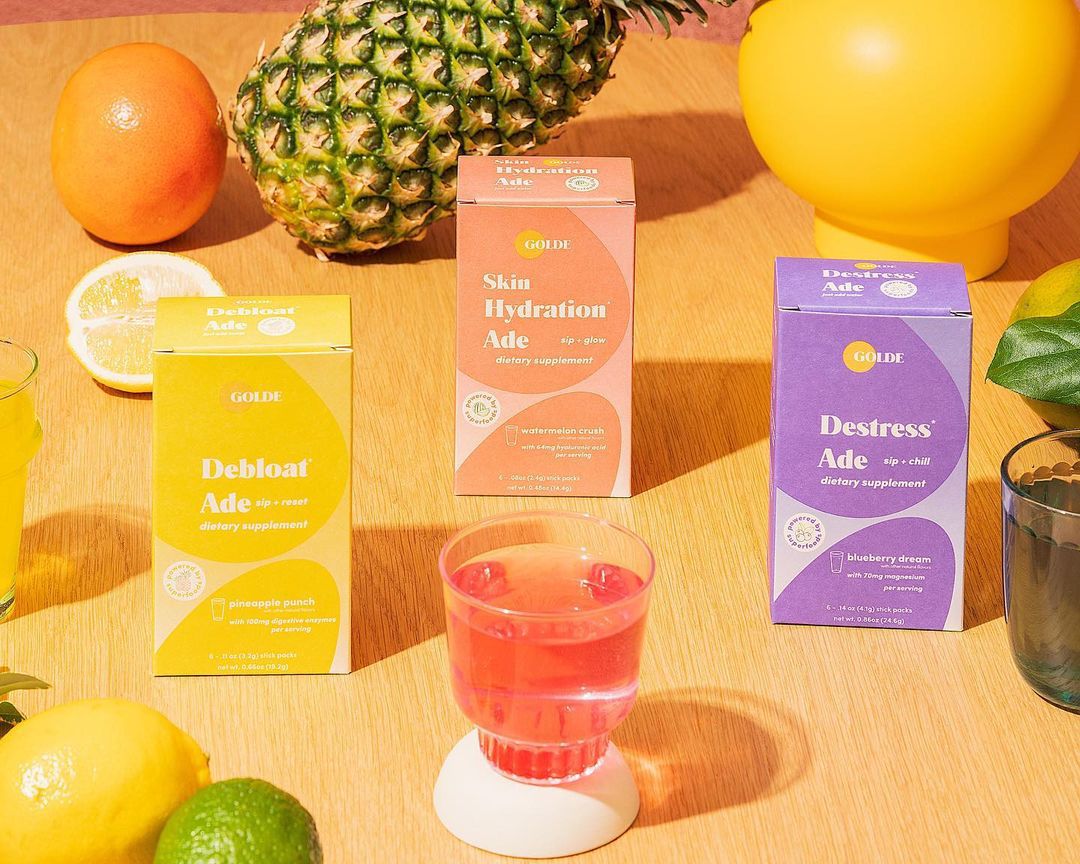What I’ve Learned From Taking Accutane—For the Second Time
I am just about to finish my sixth month of Accutane, medically referred to as Isotretinoin, for the second time. You read that correctly, this is not my first time going through the motions with the drug often referred to by dermatologists as the “closest thing we have to a cure for acne.” Like many others, this initial appeal is what drew me in at first. It sounded like something that was too good to be true, and in a way, it was.
My First Experience
My first go-around with Accutane began around two years ago in July 2018. At the time, I was still in college, about to begin my senior year, and eager to finally have somewhat clear skin. My dermatologist started me off at the lowest dosage, in order to get my body acclimated with the medication during the first month.
I went into this process having only heard personal stories from friends, some of them even having to take it twice (yikes, I thought). Prior to actually getting my prescription, I had gone through extensive preparation and education through my doctor.
Basically, when you go to your dermatologist and say you want to go on Accutane, a few things happen. First, you’re only allowed to even begin the process after having tried several other forms of acne treatment. In the years prior, I had been on minocycline, doxycycline, birth control, and other topical treatments to no avail.
Then, once they formally determine you are indeed an eligible candidate, you have to take a blood test, which you’ll continue to do every month. Next, they’ll get you set up in their iPledge system, which creates an online profile to answer any questions after your monthly dermatologist appointment. These questions cover the basics, ensuring you’re using two methods of birth control (due to the severe birth defects Accutane can cause), confirming your knowledge of the process (you have to pick up your prescription in a matter of five days), etc. This also has to be done every month.
During your monthly appointment, your doctor will evaluate your progress and ask if you’ve experienced any side effects. These include but are not limited to dry skin, headaches, joint pain, vision problems, moodiness, and depression. It’s not a fun time. From there, they’ll determine whether to keep you on the same dosage, increase it, or decrease it upon evaluating the condition of your skin. Once this is decided, they’ll call your script over to your pharmacy and your pharmacy will fill it once you’ve completed your online questionnaire.
I traveled back and forth once a month on the bus for the entire school year. I dealt with having my bloodwork done at a lab in New York and sent back to Rochester, coordinating to make sure everything fell within the proper five-day time frame, the financial issues related to these visits—the works.
Throughout this entire journey, I ran into several problems—not even just with the medication itself. I was going to school in New York City, but I lived upstate in Rochester, which is six-hour drive away. During the time I was completing my first dosage, the rules pertaining to the monthly doctor’s appointments had changed. The new rules required in-person visits and no longer allowed for virtual options, presenting me with a huge problem.
I considered my options: I could either go home once every month to do what was medically required of me, or try to find a dermatologist. I did some research, and unfortunately found my insurance did not cover out-of-region specialists. So, I had to go home. I traveled back and forth once a month on the bus for the entire school year. I dealt with having my bloodwork done at a lab in New York and sent back to Rochester, coordinating to make sure everything fell within the proper five-day time frame, the financial issues related to these visits—the works.
There were times that I would even skip class because I was simply too embarrassed to show my face in front of my peers, who all seemed to have missed this stage in life, or at least weren’t dealing with it like I was.
On the physical side, I was a wreck. The second month was hands-down the worst of them all. My skin decided to purge everything all at once. I had the worst breakout I ever experienced. My entire face hurt, I was constantly in pain, nauseous, the corners of my mouth were bleeding, and so was the inside of my nose. Not only that, I was embarrassed to show my face in public. There were times that I would even skip class because I was simply too embarrassed to show my face in front of my peers, who all seemed to have missed this stage in life, or at least weren’t dealing with it like I was.
What I Learned
I had to come to a few realizations, the first being that life waits for nobody. I refused to let my acne and insecurities take control of my plans, my education, and my self-confidence. I did not want to miss dinners with my friends, or class because my acne was bothering me. It helped to talk about all of this out loud with people I was close with, it made my struggle seem easier to handle. I shared my frustrations with them and even if they couldn’t directly relate, their sympathy did make me feel better. I was grateful to hear them verbalize their support, it was invaluable to me.
Then, I realized I need to start looking within to find my confidence. This was an absolutely necessary part of this process. My own perceived self-worth started to grow, mostly because I had no choice but to move forward. I began to embrace my flaws and accept perfection is not realistic. Interning at a PR company with beauty clients had me constantly exposed to the societal ideals of what skin “should” look like. At first, I still actively made an effort to cover up, clear my blemishes, and experience a type of self-shame that nobody should have to go through. Then I realized I was okay the way I was, and I got through it.
It helps to compartmentalize the bad moments and recognize them for what they are: moments. I won’t feel like this forever.
I finished my first round of Accutane in February 2019. I didn’t see major results until mid-January, which was a relief after months of constant stress and exhaustion with the entire process. Although I ended up with acne scars, my flare-ups were completely gone. I was in a state of disbelief. I didn’t have more than a tiny zit or two, total, over the next seven months.
The Second Coming of Isotretinoin
It wasn’t until October 2019 when I noticed my acne had returned with a vengeance. I started to get a few breakouts here and there, and as the months passed, they continued to get progressively worse. I wanted to give it some time and try some other methods before considering going back on Accutane, knowing the toll it would take on my mind and body. I tried a few chemical peels, microneedling, and a hefty amount of new (expensive) skincare products. Alas, nothing seemed to help. In fact, my acne continued to worsen.
I decided in February of 2020 to go back on Accutane. I had my initial appointment with my dermatologist, and they agreed to prescribe me this supposed miracle solution for the second time. I had to appreciate the irony in the whole situation.
I have been dealing with the same frustrations, the same disappointments, the same moments of self-criticism I experienced during the first round. The difference this time, though, is I understand how to work through it.
Although I was happy to begin my journey to clear-ish skin again, I also knew what I was in for this time around. I stocked up on Aquaphor and had a full bottle of water on me at all times. The side effects the second time around have been pretty similar, mainly the dryness and thirstiness. However, I have noticed that my joints have been bothering me a lot more. Mind you, this is the same exact brand of Isotretinoin I took the first time.
I have been dealing with the same frustrations, the same disappointments, the same moments of self-criticism I experienced during the first round. The difference this time, though, is I understand how to work through it. Yes, my skin purged and I didn’t want to leave the house at times—but it’s all forced me to look beyond what I see in the mirror. It might sound cliché, but I have learned to build a strong support system within myself. While relying on my close friends and family definitely helps, it is far more valuable to my self-esteem to be able to affirm that I am worthy of experiencing the same joys in life as everyone else. Acne or no acne.
While relying on my close friends and family definitely helps, it is far more valuable to my self-esteem to be able to affirm that I am worthy of experiencing the same joys in life as everyone else. Acne or no acne.
The Bottom Line
This time around, I have been able to have more time to reflect on how I can see myself as beautiful. Even if I’m having an off-day and not feeling great about my skin, I can find other things to be grateful about—whether it’s how good my hair looks, something I accomplished at work, or simply making a friend or family member smile. It helps to compartmentalize the bad moments and recognize them for what they are: moments. I won’t feel like this forever. This is something passing in time, and it’s far more important to look beyond this issue.
Overall, my experience with Accutane has taught me to feel comfortable being my most authentic self, whether that is complaining about my acne or embracing it. Achieving “perfect” skin isn’t even a real thing. Everybody has pores and texture and scars of some kind. At the end of the day, it’s important for everyone to understand that unrealistic societal beauty standards exist, but that doesn’t make them real.










